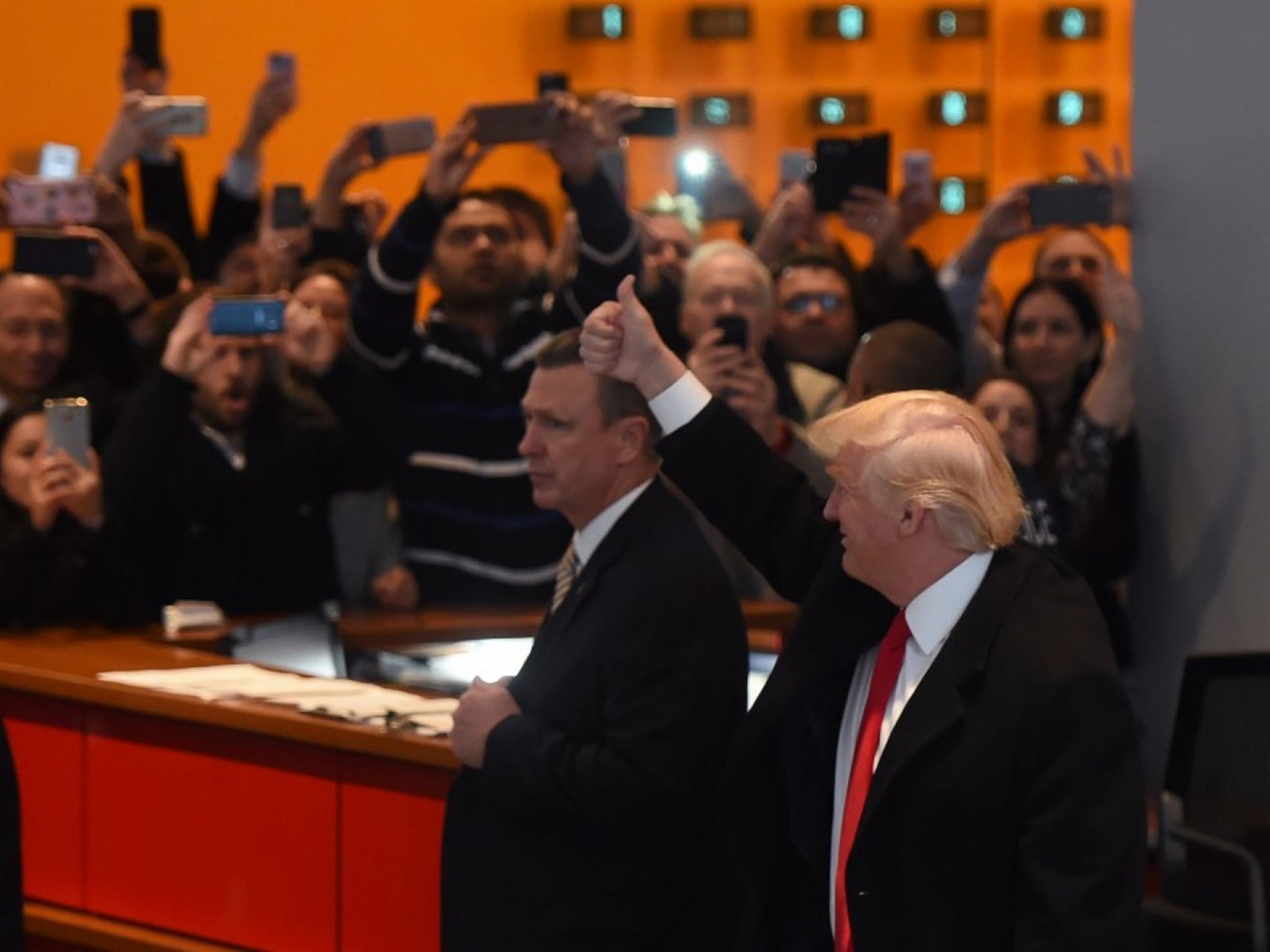This is the single most dangerous thing Donald Trump said in his New York Times interview
The president doesn't need to worry about conflicts of interest. Um, what?

Donald Trump said lots (and lots) of eyebrow-raising things during his sitdown with the New York Times on Tuesday. On climate change. On prosecuting (or not) Hillary Clinton. But one statement - in response to a question about the various conflicts of interest between his eponymous company and his status as the soon-to-be president of the United States - was truly eye-popping.
Trump's statement carried considerable echoes of Richard Nixon's famous/infamous line to interview David Frost three decades ago: “Well, when the president does it, that means it is not illegal.”
It's impossible to know whether Trump was purposely channeling Nixon. (I personally think he wasn't doing so consciously.) In truth, it reminded me as much if not more of Sylvester Stallone as Judge Dredd declaring “I am the law.” (The idea of that movie was that people like Dredd functioned as judge, jury and executioner.) Or he could have taken the idea from former New York City mayor Rudy Giuliani, a close Trump adviser, who said the following to CNN's Jake Tapper this month about conflicts of interest: “You realise that those laws don't apply to the president, right? So the president doesn't have to have a blind trust. For some reason, when the law was written, the president was exempt.”
No matter where Trump got the idea, it's a very dangerous one for any president to hold: That you (or anyone) is effectively above the law.
But before we get to all of the implications that spring from that idea, let's examine the notion of presidential conflicts of interest. According to PolitiFact, the relevant portion of the US code covering it is Title 18 Section 208, which says that federal government employees can't deal with issues in their official capacity in which they or their families have a vested financial interest.
Except that the statute doesn't hold for all federal employees. It reads: “Except as otherwise provided in such sections, the terms 'officer' and 'employee' in sections 203, 205, 207 through 209, and 218 of this title shall not include the President, the Vice President, a Member of Congress, or a Federal judge.”
It’s been this way since at least 1974, when the Justice Department issued a letter saying Title 18 Section 208 did not apply to the president. Congress expressly codified the exemptions in 1989.
In the 1974 letter, the Justice Department said the legislative history of this conflict-of-interest provision indicated that it was never intended to apply to the president. Additionally, the Justice Department said placing conflict-of-interest laws on the president could constrain him in a potentially unconstitutional manner, though it did not give specific examples.
PolitiFact rated Giuliani's claim as “true.”
So, legally speaking, Trump (and Giuliani and Judge Dredd) are on generally solid ground when it comes to conflict of interest laws. The primary ones put in place by the US code simply don't apply to the president.
But then there is the common sense reality. As in, someone who is the head of a major international real estate development company should be aware that being elected president puts him deeply at cross-purposes unless and until he fully walls himself off from the goings-on of his former life. (For a running and regularly updated list of how Trump's status as president-elect is helping his private companies, click here.) Because of those appearances, the president-to-be should volunteer to go far above the law when it comes to ensuring there isn't even the glimmer of suspicion that the right hand is washing the left.
In short: Just because something isn't illegal doesn't make it right. (I made a similar argument about Hillary Clinton's relentless pushback that she had broken no laws with her private email setup. That was proven to be accurate - and also besides the broader point of right and wrong.)
Hiding behind the “well, there's no law that says I can't do this” is not exactly presidential. And a belief that the president isn't bound to do everything he can to avoid the appearance of conflicts of interest suggests a dangerous slippery slope about what a president can and should do in office.
The best thing Trump can do now is say: I know I am not legally required to do so but I am going to bend over backwards to extricate myself from any and all conflicts of interest - real or perceived - so that the American public can rest assured I am only focused on making their lives better.
I doubt he will say anything of the sort. Which is unfortunate. And dangerous.
The Washington Post
Join our commenting forum
Join thought-provoking conversations, follow other Independent readers and see their replies
Comments